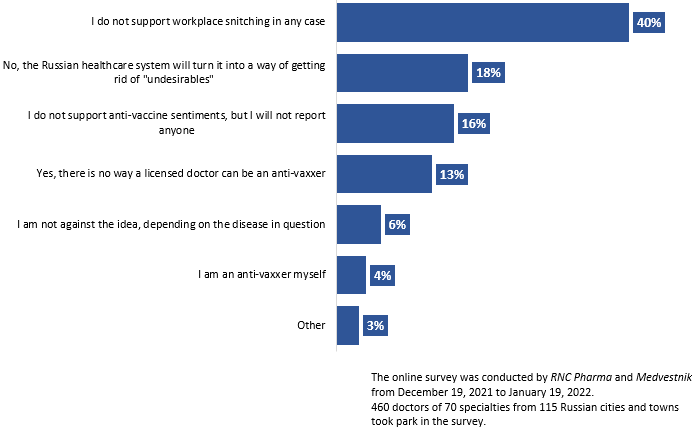Survey by RNC Pharma and Medvestnik: 19% of Russian Doctors Ready to Report Vaccine-Hesitant Co-workers to Management
40% of Russian doctors do not accept “workplace snitching” in any case, according to a survey conducted by the RNC Pharma analyst company and the platform for doctors Medvestnik. Obviously, this answer had statistically significant differences between the two types of medical institutions—it was more often chosen by employees of private hospitals (48% against 34%). Another 18% of the respondents believe there is a risk that the Russian healthcare system will turn informing the management into a way to getting rid of “undesirables”, which is why they do not plan to report them. Around 16% of the doctors say that while they do not support anti-vaccine sentiments, they will not report their colleagues. Interestingly, this answer was especially popular among employees of public hospitals. Finally, another 4% say that they are anti-vaxxers themselves and they would not report themselves.
Therefore, albeit with different motivations, the vast majority of the Russian doctors surveyed (78%) do not support informing the management on co-workers who are vaccine hesitant. At the same time, nearly one in five (19%) do not see anything shameful in this. For example, 13% of the respondents do not think that a licensed doctor can be vaccine hesitant, and 6% have no issue with reporting, but it still depends on the disease. One of the specialists who chose to give their own answer said they would first try to change their co-worker’s mind instead of immediately reporting them to the management.
Are you willing to report vaccine-hesitant colleagues to the management? (single-answer question)

 Рус
Рус




